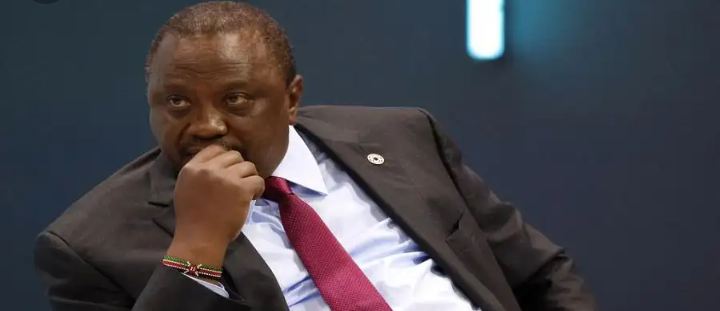
Why President Uhuru Quit Watching Western BBC, CNN & SkyNews Citing Propaganda
Western media’s coverage of African issues and events continues to be skewed towards crude perceptions depicting the continent as a perennial hotbed of savagery conflict, instability, starvation, miserably weak governance, corruption, disease, and irredeemable backwardness. The biases continually proliferated by Western commercial media behemoths and regurgitated by African media outlets portray Africans as despicable and alien beings – what may be referred to as “othering”.
Kenya’s president Uhuru Kenyatta lambasted the Western media’s reportage of Africa in a video clip that has sparked conversations to revolutionize the way Africa is covered. In the clip, Kenyatta defiantly rejects the hegemony of media behemoths such as CNN, BBC, Sky News, and Al Jazeera. He accused global media giants of unfairly reporting about Africa, expressing how these media houses perpetuate ignorant, decontextualized and colonially-motivated straight news reportage.
For Kenyatta, his personal redemption from the onslaught of tired tropes such as war and starvation pushed by Western media is not watching or reading their news altogether. His basis for this newfound redemption is that these media behemoths are only concerned about the “negative aspects” from Africa – those are the only issues brought out. Where they momentarily deviate from this, the media houses propel the tired and uninspiring ‘Africa Rising’ narrative – another form of othering.
The Kenyan president remarked that Western reportage of events and issues in countries such as Rwanda, South Sudan, Ethiopia, Somalia, Nigeria, and others marred by conflict and immiseration suffer from the disease of foreign correspondence. He mocked the phenomenon of foreign correspondence – “ John White reporting from Nairobi, Kenya” – much to the amusement media audience in presence, saying that it presents the base of correspondence (Nairobi in this instance) as the source of conflict, as if Boko Haram is stationed and wreaking havoc there.
To Kenyatta, Western media, via foreign correspondents, presents Africa as perpetually dread and terrible, without anything good to report about. And this is what has made him stop digesting their news. The scathing nature with which Western media reports Africa does more harm than good as images of a continent about to “self-destruct” are propagated to the world – such negative and fallacious perceptions shape and influence people’s opinions and views about what Africa is like.
able media framework that reports Africa for Africans – that delves into the explanations of why Africa grapples with its not-so-rosy material realities.
Kenyatta’s criticism should prompt African journalists and editors to collectively work towards highlighting all aspects of Africa’s material realities in an objective manner – both the good and the bad – with in-depth analyses and explanations filled with historical context and nuance.
The double standards of Western media must be fervently challenged with incessant vigor as regards counter-hegemonies: Western media often glosses over the fact that much of what troubles Africa presently is attributable to colonial legacies, aggravated by neocolonial interference that tamper with the sovereignty of African countries.
Foreign correspondents are ‘parachuted’ in Africa to report on matters they are detached from – this is because “foreign correspondents think from their own environment and societies” and as such what constitutes news to them is political mess and disasters – this may be referred to as disaster journalism. They have no regard for weighing in social justice considerations in their reports and follow-up pieces, and this is what African media houses must strive to correct. African media houses must not regurgitate news from Western news wires as this only perpetuates wrong perceptions about Africa.
This calls for broader media solidarity that focuses on development and contextual journalism as an emancipatory tool. African media houses must be staffed with editors and reporters who coalesce around the fundamental principles of media freedom, a conducive legal and policy environment, strong professional codes of conduct, sustainable business models (which respect the media’s public interest role), and the ability to produce high quality local content that is relevant and contextual to local conditions.
It means Kenyatta himself, if altruistic in his criticism, must champion the public funding of African media to create public interest content. Media funding/capitalization and the attendant ownership models must be informed by strategies that strive earnestly for the realization of economic sustainability. With this commitment, the personal redemption to ignore BBC or CNN news becomes one full of substance, not merely lip-service.
